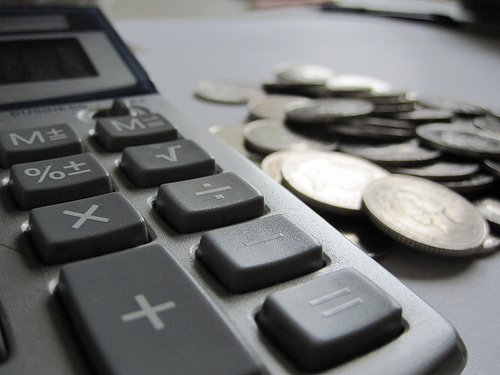This will be my last post for BudgetSimple! It’s been a little over two years since I started sharing my budgeting and money-saving tips with you, and I’m incredibly grateful for the experience. I wasn’t always great with my money, but I’ve learned a lot over the years, and I’ve only built on that knowledge and further developed my financial skills by taking a deeper look at all of the topics we’ve covered here on the blog. As I head off to bigger and better things, I want to leave you with some of the most important ideas that I’ll be taking away with me, and I hope you find them just as helpful as I do!
1. Keep track of ALL your spending. The more precise you can be with your tracking, the easier it’ll be to see exactly where your money is going. One of the mistakes that I learned to correct was that I was budgeting for the big things (i.e. monthly bills, student loans, etc.) but I was forgetting about the more minor things that I needed money for, like clothing, haircuts, car repairs, and the occasional dinner date. I would use “leftover” money from each paycheck for these things, and if I didn’t have enough, I would put it on my credit card. By allowing room for these extra things in your budget, you’ll always know what’s available to use, and you can avoid adding any additional debt.
2. Get rid of your debt as fast as you’re able to. Being debt-free is a great financial goal to reach for. I had a small amount of credit card debt left, and I felt like it was continuously eating away at me. However, I had become so obsessed with saving as much money as I could, that I wasn’t contributing as much to the balance as I should have been. I learned to save a little over time, while contributing as much as I could to what felt like an overwhelming burden. I’m happy to report that my credit card is now paid off, and I’m working at chipping away at my remaining student loans. Only a few more years, and I’ll be totally in the green! I credit BudgetSimple with helping me to hone in on these skills.
3. Don’t cheat yourself. When you set these goals for yourself, treat them as promises. I often said I’d save more or I’d stop spending so much on things I didn’t really need, but I didn’t hold up my end of the bargain, and my bank accounts would reflect that. I’d have to skip out on dinner with friends or I’d pass on a purchase I might have really wanted because I didn’t stick to my plans. I learned that by doing this, I was only hurting myself in the long run, and I was missing out due to my lax attitude about spending and saving money. Sticking to my budget allowed me to plan for what I wanted and actually get it.
4. Trim costs when you can. By creating a budget, everything I was spending was clear as day, right in front of me. I could see what I needed to spend, and where I was going overboard. This allowed me to see where I could make changes, and ultimately, save more money for myself. I was able to put that extra cash towards more important things without having to sacrifice much.
5. Plan ahead. Building a hefty emergency fund and saving for long-term purchases or goals seemed extremely daunting to me when I first dove into budgeting. It felt like it would take FOREVER to save up what I needed to. What I learned is that these things don’t happen overnight, and you don’t need to throw every penny you have at the pile to make it grow faster. If you can set up an end goal and a timeline to meet it for yourself, you can divide up where your money goes and reach multiple goals simultaneously.
Best of luck to everyone with your future financial goals!

